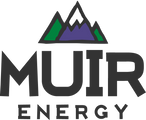Our 2020 Carbon Offset Projects
May 12, 2021
Let’s just jump right into the basics! “What’s a carbon offset?” A carbon offset is a way to drive investment into climate change solutions. Purchasing one carbon credit is equal to avoiding or removing one metric tonne of carbon dioxide equivalent (a fancy way to say greenhouse gases) from the atmosphere. With the help of Climate Neutral, we calculated that in 2020 we polluted 59 metric tonnes of carbon dioxide.
We supported three projects focused on conserving forest ecosystems in Indonesia, Brazil, and the US. Each project is independently verified, ensuring they’re effectively protecting our climate. Below are the sequestration projects we have chosen to support:
Project 1: Peatland Restoration and Conservation

The Katingan Peatland Restoration and Conservation Project restores and protects one of the largest remaining peat swamps, which supports healthy soil and clean water, and provides habitat for Proboscis Monkeys and endangered Orangutans. In addition, the project is investing in a number of community improvements, such as offering local health clinics, and helping develop sanitation and healthy plumbing options. The project has hired approximately 400 workers above minimum wage to contribute to local workforce and economic development, has contributed ~950 micro-finance loans within the community, and has helped launch sustainability initiatives in 34 nearby villages.
Project 2: Forestry in Brazil

The Envira Amazonia Project commercializes sale of açaí, rubber and medicinal plants to create an alternative income source and reduce deforestation pressure for over 494,000 acres of endangered tropical rainforest near the city of Feijó in Brazil. This area is currently at risk of deforestation because cattle ranching and subsistence agriculture are an important source of income for local communities. By developing new forms of income that rely on sustainable use of the rainforest, communities have an incentive to keep the ecosystem intact. Additionally, the project includes agricultural extension training for local landowners to learn how to harvest these products in a way that supports the ecosystem. Overall ecosystem benefits of this project include improved water and soil quality and conservation of rainforest habitat.
Project 3: Forest conservation in the U.S.

The Blandin Native American Hardwoods Conservation Project maintains ecosystem quality while continuing sustainable timber production in almost 200,000 acres of forest that supports more than 3,200 workers and hundreds of businesses. Sustainable use of this forest helps promote carbon sequestration while protecting habitat for 47 species of birds, over 30 species of mammals, and trout. This project also supports a number of existing forest ecosystem benefits including water quality protection, wildlife habitat, and public recreation.


